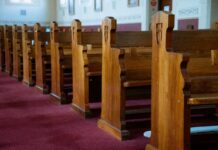
With the exception of the opposition Syrian National Coalition (SNC), led by Mr Ahmed Al-Jarba, the clamour for President Bashar Al-Assad to depart appears to have ceased, writes Abdelbari Atwan.
American politicians, both hawks and doves, and European leaders of every hue were previously blue in the face from shouting that Assad had to go.
Now, all we hear are words of praise and encouragement, especially from the mouth of John Kerry, US Secretary of State. Kerry is really impressed that Assad has met the first deadlines towards chemical weapons disarmament set by the United Nations weapons experts.
The State of Qatar’s sudden silence is particularly conspicuous. It was Qatar that led a fierce campaign against the Syrian regime, politically and militarily, and spearheaded efforts to remove the regime from the Arab League, giving the Syrian seat to the SNC and inviting the then SNC leader, Moaz al-Khatib, to address their summit in March last year.
Qatar’s change of heart is not unrelated to the present campaign in the media outing Qatar for its human rights abuse of foreign workers; a campaign that had its origins in Washington. In other words, this change of heart is as a result of pressure from the US administration which clearly now seeks not only a negotiated solution to the Syrian crisis but, likely, keep Assad in power.
Consensus
After two and a half years of brutal war the international community has reached a consensus that rehabilitation of Assad is preferable to the deep uncertainties of any alternative. There are many indicators and reasons:
Subscribe to our newsletter and stay updated on the latest news and updates from around the Muslim world!
First: the Americans and Europeans are prepared, not only to contemplate Assad’s candidacy in next summer’s presidential elections, but even to extend his current term by a further two years, postponing elections until 2015 with the excuse that security problems will make organizing the ballot extremely difficult, particularly in areas outside government.
Second: the erosion of international and regional isolation of the Syrian regime, following Assad’s agreement to sign up to the Chemical Weapons Convention and allow inspectors from the Organization for the Prohibition of Chemical Weapons (OPCW) to oversee the destruction of his arsenal. All of these factors enhance the legitimacy of the Assad regime.
Third: US-Iranian rapprochement has already seen John Kerry in one to one talks with his Iranian counterpart, foreign minister Mohammad Javad. Do not be surprised if Kerry meets Syrian foreign minister Walid Muallem in the coming weeks.

Fourth: the revival of Palestinian diplomatic relations with the regime after two and a half years of estrangement. Two days ago, Abbas Zaki, the personal envoy of President Mahmoud Abbas, met with President Assad. At the same time, a Hamas delegation, led by Mohammed Nasr, a member of the political bureau, visited Tehran and the two sides agreed to normalize their relationship again and mooted the return of Hamas to its base in Damascus – Khaled Meshaal uprooted it in April this year, breaking with the Assad regime, a long term supporter of the Palestinian resistance.
Fifth: rapid normalization of relations between the new government of Egypt led by Abdel Fattah El Sisi and its Syrian counterparts, and deteriorating relations between Egypt and the Obama administration which has suspended military aid to the junta estimated at more than $1.5 billion annually.
Sixth: there are indicators that the Government of Recep Tayyip Erdogan in Turkey is shifting its stance under mounting US pressure and Syrian allegations that it is supporting “terrorism” over the border in Syria. Turkey is starting to impose restrictions on the movement of jihadist groups across Turkish territory and has frozen some bank accounts belonging to known extremist groups.
Turkey also fears an explosion of sectarian and ethnic conflicts at home, mirroring those already tearing Iraq and Syria apart (the latter also shares Turkey’s Kurdish ‘problem’).
Seventh: widening gaps between the various elements within the Syrian opposition, and the lack of a unified universally representative umbrella. The armed opposition is now dominated by armed jihad groups and riven with division; there are frequent clashes between the Free Syrian Army and the Islamic State in Iraq and Syria.Popular support for the first president of the opposition, Dr. Burhan Ghalioun, is waning on Facebook.
Assad’s confidence
The Syrian President’s new confidence, and desire for rehabilitation, was reflected most clearly in his recent interview with German magazine Der Spiegel. He even admitted that he has made mistakes in the way he dealt with the initial protests and claimed that the truth lay in the ‘gray’ area not in stark black and white. He said he would negotiate with the opposition but only after it had thrown aside its weapons.
President Al-Assad has become something of a media star these days. He has won the media battle without losing his gains on the ground. To most observers he appears to have gone from being a besieged President with just a few days left in office, to a confident leader envisaging his own domination of the political scene years to come.
And he is not alone in wanting this outcome – the most unlikely recent twist in history suggests that the West has joined Russia and Iran in wanting it too.

















